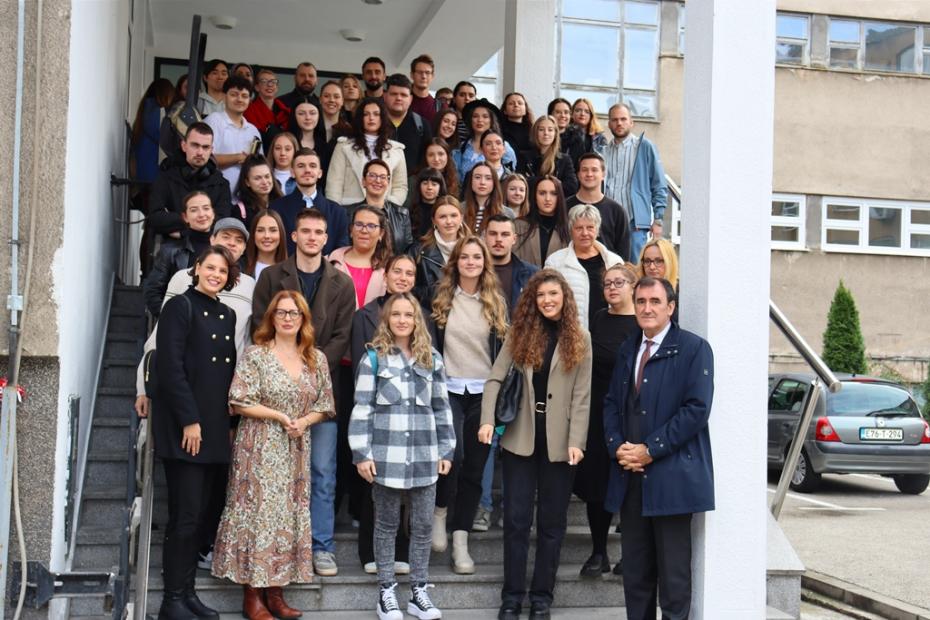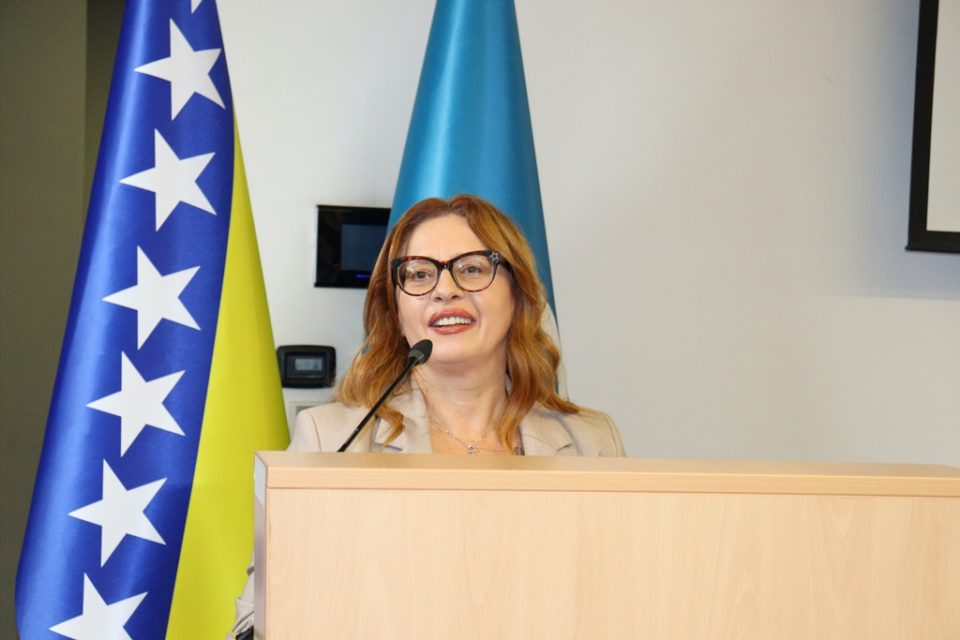
At all levels of the education system in Bosnia and Herzegovina, there is very little space for young people to voice their concerns in any way about the issues that interest and affect them. The University of Sarajevo Faculty of Political Sciences is providing opportunities for young people to make their voices heard and thereby encourage positive changes in Bosnian society.
Dr. Sarina Bakić, a lecturer at the Faculty of Political Sciences in Sarajevo, has taken her dedication to education a step further, exemplifying how it can be wielded as a powerful tool for social transformation.
Together with Professor Dr. Amila Ždralović from the University of Sarajevo Law Faculty, she held a lecture and participated in a discussion with Political Sciences students at the General Conference of the United Nations (UN) in Paris last November. Students had the opportunity to express their opinions on globally relevant issues and social challenges, presenting their own perspectives on working towards long-term solutions.
The discussion took place as the result of the University of Sarajevo’s selection to be among the seven global universities participating in the UNESCO debate “(Re)thinking the Commons, Acting Together to Protect Them.”
“This is just one of several attempts to answer very important questions from the perspective of young people,” said Bakić, noting that young voices are often ignored by the academic community.
According to Bakić, people bring about change through personal action. She emphasizes the importance of making progress in education, recognizing young people as a vital resource for a better future.

“Young people have been such a potent force throughout history, so why wouldn’t they be now? But it seems to me that we elders don’t take the youth seriously. We don’t hear you, we don’t see you. I’m trying to hear and see you. I hope I succeed in that,” Bakić stated.
At the heart of every community are individuals who not only teach, but also inspire and motivate others to action. With their passion and dedication, these figures not only enrich the research community, but they are also a source of inspiration for young people at large.
Abdulah Cuplov, a student at the Political Science Faculty in Sarajevo who participated in the discussion, stressed the importance of professors in motivating young aspiring academics:
“Professors are a crucial aspect of the development of every future academic. Without a real professor who is passionate about their field and possesses considerable charisma and social intelligence, young people wouldn’t have any academic role models, and without role models, we have no notion of the success and knowledge that we want to achieve.”
In addition to being a key figure in the project, Bakić also works to bridge the gap between theory and practice, giving students the opportunity to apply their knowledge in the real world. Her approach encourages students to think critically and take an active role in shaping society.
“Everyone involved in the education system, not only professors but also administrative staff who can contribute in their own way to working with young people, has to get involved in order to avoid falling into the trap of the neoliberal world view of ‘me, myself, and I,’ and to be socially engaged in this context,” asserts Bakić.
Professors are not just transmitters of knowledge but should also be initiators of change. Participants in the UNESCO debate describe youth initiatives such as these as sources of inspiration that encourage them to think and take action towards collective long-term solutions. As one student who participated in the discussion at the Sarajevo Faculty of Political Sciences observes:
“This example shows that education has the power to be the driver of positive transformations, and youth engagement is a key resource for building a more sustainable future.”.






